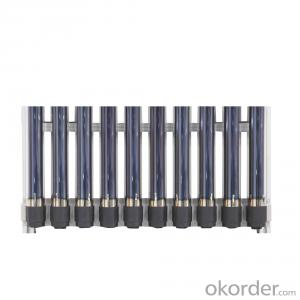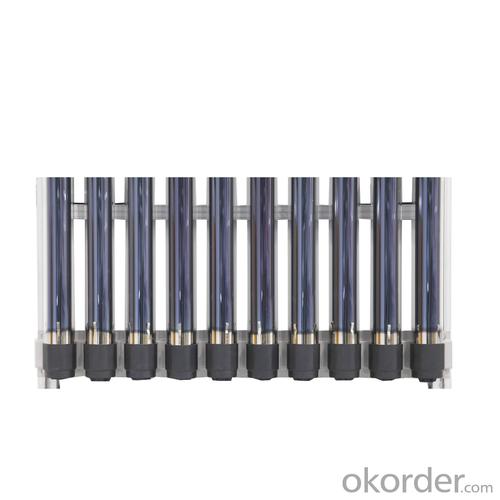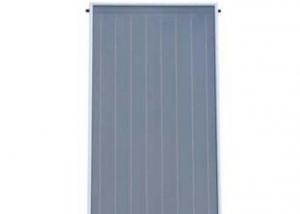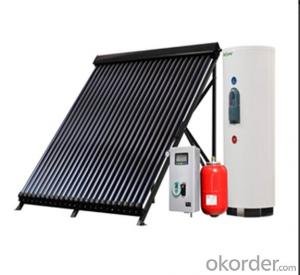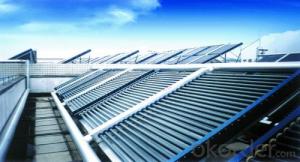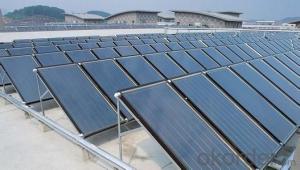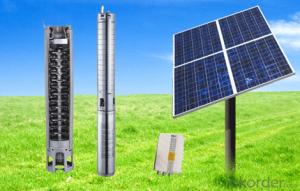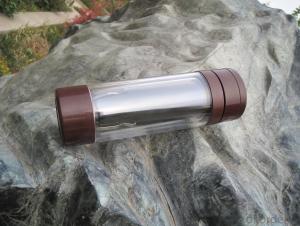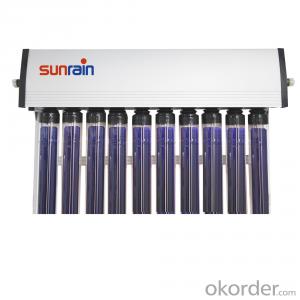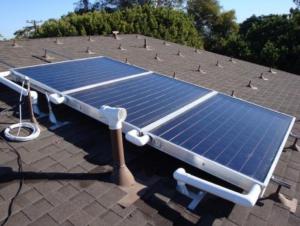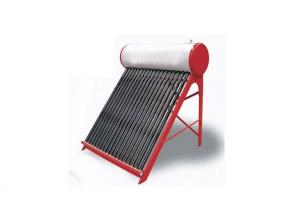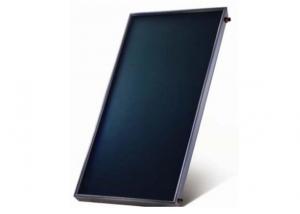Ariston Solar Commercial Heat Pump Water Heater
- Loading Port:
- China Main Port
- Payment Terms:
- TT OR LC
- Min Order Qty:
- -
- Supply Capability:
- -
OKorder Service Pledge
OKorder Financial Service
You Might Also Like
R410A gas, environmentally friendly.
Free modular combination.
Unique defrosting flow path.
Air side reserved special defrosting flow path, when the system is defrosting, the four-way valve is reversing , the system will absorb energy from special defrosting flow path, the defrosting progress will have no impact on water temperature.
High efficiency compressor.
For 50Hz units, Copeland’s efficient scroll compressor.
For 60Hz unit, Danfoss’s efficient scroll compressor.
Flexible design, low temperature design guarantees performance.
Electric water flow valve supplies hot water at a stable temperature and expands the life of compressor.
50Hz units are CE certified.
- Q: How does the type of solar collector affect the performance of a solar water heater?
- The type of solar collector greatly affects the performance of a solar water heater. Different types, such as flat plate collectors or evacuated tube collectors, have varying levels of efficiency in absorbing and transferring solar energy. Factors like the design, material, surface area, and insulation of the collector impact its ability to capture and retain heat from the sun. Therefore, choosing the right type of solar collector is crucial in optimizing the performance and overall effectiveness of a solar water heater.
- Q: Can a solar water heater be used in areas with salty air?
- Yes, a solar water heater can be used in areas with salty air. However, it is important to regularly maintain and clean the system to prevent corrosion and damage caused by the salt.
- Q: How does the angle of the solar panels impact the performance of a solar water heater?
- The angle of the solar panels greatly affects the performance of a solar water heater. The optimal angle allows for maximum exposure to sunlight, ensuring efficient conversion of solar energy into heat. If the angle is too steep or shallow, it can result in decreased energy absorption and reduced heating efficiency. Finding the right angle is crucial to achieve optimal performance and maximize the output of the solar water heater.
- Q: How does a solar water heater perform in areas with high levels of snowfall?
- A solar water heater may not perform optimally in areas with high levels of snowfall. The snow can cover the solar panels, reducing their ability to absorb sunlight and generate heat. However, some solar water heater systems are designed with features such as tilted panels or automatic snow removal mechanisms to minimize the impact of snowfall.
- Q: Can a solar water heater be used in areas with limited nuclear power resources?
- Absolutely, areas with limited nuclear power resources can definitely utilize a solar water heater. The functioning of solar water heaters depends on sunlight for heating water, hence they can operate efficiently as long as there is an ample amount of sunlight. In fact, solar water heaters prove to be an excellent substitute for conventional water heaters in regions that lack nuclear power resources or experience energy deficits. Not only are they eco-friendly and cost-efficient, but they also substantially diminish reliance on fossil fuels or nuclear power. By harnessing the sun's power, solar water heaters provide a sustainable and dependable solution for water heating in areas with limited nuclear power resources.
- Q: Can a solar water heater be used in areas with limited access to tidal power?
- Yes, a solar water heater can indeed be used in areas with limited access to tidal power. Tidal power refers to the energy generated from the rise and fall of ocean tides, whereas a solar water heater utilizes the energy from the sun to heat water. These two sources of energy are independent of each other and can be used separately. Solar water heaters are a sustainable and renewable technology that can be installed in any area with adequate sunlight. They work by capturing the sun's energy through solar panels or collectors, which then heat up the water in a storage tank. This heated water can be used for various purposes, such as bathing, cooking, or space heating. Therefore, even in areas without access to tidal power, solar water heaters can be an excellent alternative for providing hot water, reducing reliance on fossil fuels, and lowering energy costs. They are particularly beneficial in remote or off-grid locations where electricity supply may be limited or unreliable. In conclusion, while tidal power may not be available in certain areas, solar water heaters offer a viable and environmentally friendly solution to meet the demand for hot water.
- Q: Can a solar water heater be used in combination with other renewable energy systems?
- Indeed, the utilization of a solar water heater alongside other renewable energy systems is quite feasible. It is a prevalent practice to integrate solar water heaters with other sources of renewable energy in order to optimize energy efficiency and diminish dependence on conventional energy sources. One popular approach involves coupling a solar water heater with a photovoltaic (PV) system. The PV system harnesses sunlight to generate electricity, which can then be utilized to power the electric components of the solar water heater, such as circulation pumps or controls. This amalgamation enables the creation of a more eco-friendly and self-sustaining water heating system. Furthermore, solar water heaters can also be harmoniously integrated with other renewable energy systems, such as wind turbines or geothermal heat pumps. These combinations offer a holistic and adaptable solution for renewable energy, as they make use of multiple sources of clean energy to meet diverse energy requirements. By integrating various renewable energy systems, individuals and organizations can effectively reduce their carbon footprint, lower energy expenses, and enhance their energy autonomy. The fusion of a solar water heater with other renewable energy technologies represents a significant stride towards a more sustainable and environmentally conscious energy future.
- Q: Are there any health benefits associated with using a solar water heater?
- Yes, there are several health benefits associated with using a solar water heater. One of the primary benefits is the reduction in exposure to harmful chemicals and toxins found in traditional water heating systems. Solar water heaters do not require the use of fossil fuels, such as natural gas or oil, which can release harmful emissions during the heating process. By utilizing clean and renewable solar energy, the water heated by solar water heaters is free from these pollutants, resulting in improved indoor air quality and reduced risk of respiratory problems. Additionally, solar water heaters can help to prevent the growth of harmful bacteria and microorganisms in the water supply. Traditional water heaters often store hot water in tanks, providing a suitable environment for the growth of Legionella bacteria and other pathogens. Solar water heaters, on the other hand, heat water on-demand, minimizing the risk of bacterial contamination and reducing the chances of waterborne diseases. Moreover, using a solar water heater can have positive effects on skin health. Traditional water heating systems often rely on hard water, which contains a high concentration of minerals like calcium and magnesium. These minerals can dry out the skin and hair, leading to issues like dryness, itchiness, and dandruff. Solar water heaters, however, can be equipped with water softening systems that remove these minerals, resulting in softer and healthier skin and hair. Finally, the use of solar water heaters can contribute to overall mental and emotional well-being. By reducing reliance on non-renewable energy sources, individuals can feel a sense of satisfaction and pride in their contribution to a healthier and more sustainable environment. This positive mindset can have a cascading effect on mental health, improving mood, reducing stress, and promoting overall well-being. In conclusion, the use of solar water heaters offers a range of health benefits, including reduced exposure to harmful chemicals, prevention of bacterial contamination, improved skin health, and positive impacts on mental well-being. By harnessing the power of the sun, solar water heaters provide a sustainable and health-conscious solution for heating water.
- Q: How does a solar water heater impact the environment?
- A solar water heater positively impacts the environment by reducing greenhouse gas emissions and dependence on fossil fuels. It utilizes clean and renewable solar energy to heat water, significantly reducing the carbon footprint associated with traditional water heating methods. Additionally, solar water heaters conserve energy and minimize the need for electricity or gas, thereby helping to conserve natural resources and reduce pollution.
- Q: What is the recommended angle for installing solar collectors in a solar water heater?
- The recommended angle for installing solar collectors in a solar water heater is typically between 20 and 50 degrees, depending on the geographical location.
Send your message to us
Ariston Solar Commercial Heat Pump Water Heater
- Loading Port:
- China Main Port
- Payment Terms:
- TT OR LC
- Min Order Qty:
- -
- Supply Capability:
- -
OKorder Service Pledge
OKorder Financial Service
Similar products
Hot products
Hot Searches
Related keywords
